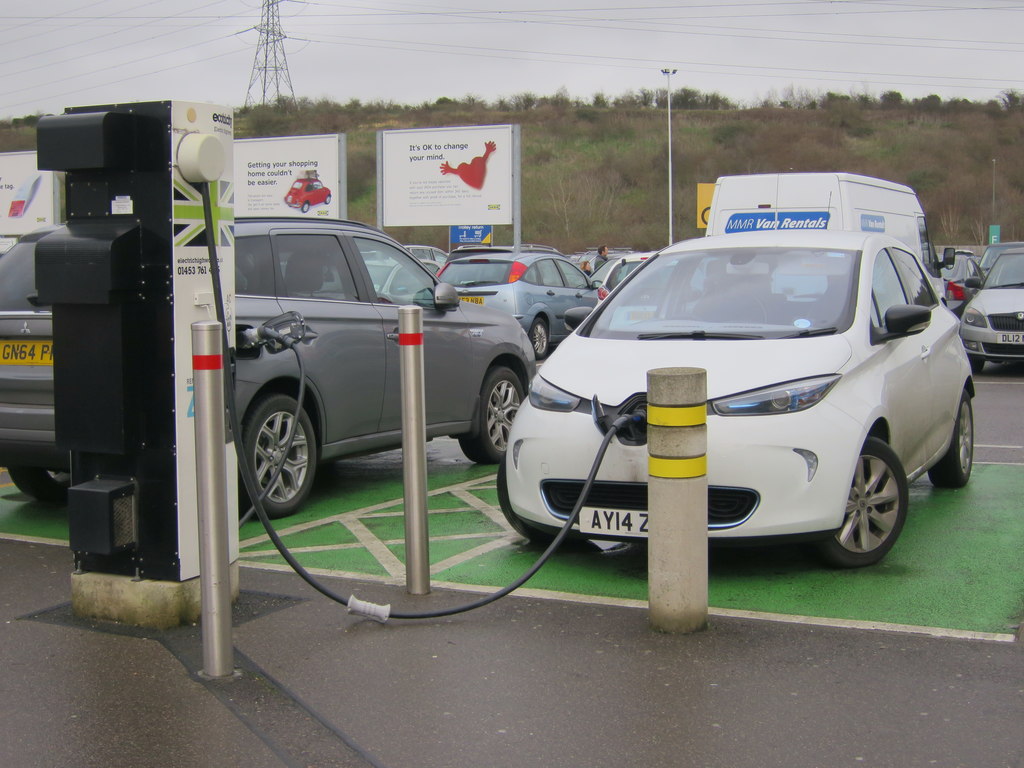In a statement published on Monday, October 9 East Sussex County Council (ESCC) announced that, if funding is secured, it could deliver 2,000 electric vehicle charging points.
The statement reads:
A grant worth £4.44 million could see the installation of electric vehicle charging points in more than 280 locations across East Sussex. East Sussex County Council has been allocated the money from the first tranche of the Government’s Local Electric Vehicle Infrastructure (LEVI) Capital Fund.
The grant would enable the council to bring an operator on board to install and manage charge points and rapid chargers and put in place infrastructure to support future demand.
Councillor Nick Bennett, deputy leader and lead member for resources and climate change, said: “We are delighted to have been allocated this funding which could help us provide as many as 2,000 charging points across 280 locations, primarily for residents to park and charge up on the street. We are now working hard to produce a solid business case to secure this funding.”
He goes on to say: ‘”This project supports our ongoing and ambitious efforts to do our part to tackle climate change. We know that these changes cannot happen overnight, but with every project and funding opportunity, we are moving a step closer to our goal.”
The funding allocated would not cover the entire cost of installing the charge points and infrastructure and the council continues to work with partners and industry experts to secure the necessary additional investment.
The county council intends to consult with the public before any decisions are made on the locations of charge points.
East Sussex County Council declared a climate emergency in 2019 and pledged to achieve carbon neutral status by 2050 at the latest. The council had already slashed its own carbon emissions by 46 per cent in a decade and, according to a report to Cabinet, have reduced emissions by a further 32 per cent between 2019 and 2023.
Cllr Bennett added: “Climate change is one of the biggest issues facing us and, while we know there is a long way to go, we are making great strides towards our science-based target committing an additional £9.9 million up to March 2025.
“While we continue to work on reducing our own emissions, it’s vital that we bring the rest of the county with us and make it as easy as possible for our residents to take action over their own carbon footprint with schemes like the electric vehicle charging points project.”
It remains to be seen how many will be allocated to Rye, when they will be installed and where they will be placed.
Image Credits: Oast House Archive (cc-by-sa/2.0) https://creativecommons.org/licenses/by-sa/2.0/.




While environment is a key issue and a must goal to reduce carbon, people who might be able to afford electric cars now are few and probably not many more in the future.
What is needed immediately is a financial strategy for affordable housing, buildings with flats with affordable rents, Hastings seems to be getting their heads around that.
And another thing, why was Rye not included in the regeneration grant?
There is deprivation here too.
Perhaps rather than considering charging points for electric vehicles (and for the life of me I still cannot see how we’re going to achieve an adequate number of charging points for locals and visitors unless there are some very significant developments in battery technology, both increasing range and decreasing charge time) we should be thinking more about a cohesive transport plan for the future, a part of which will doubtless be electric vehicles. Current plans are enthusiastic about cycling and walking (relatively easy and cheap to achieve over short distances, not so good for the elderly and infirm), but then the tangle of public transport doesn’t get quite so much attention – how taxis, buses, and trains are worked together to attain the holy grail (in transport terms) of transport integration – with private cars, whether powered by electricity, internal combustion engines or whatever progressively playing a lesser role as it appears they must. At the moment all I hear is of capped bus fares (which is great, but not so great if the bus service itself is of such frequency that it becomes useless, as are many rural services) and demand responsive Flexbus services, which don’t appear to be well understood, and as most of the time I seem to trip over the Flexbus itself parked in a layby or a quiet lane, I presume that utilisation is very low (time will tell, early days). Certainly we need a wider approach than just a clutch of on street vehicle charging points – the problem is much greater.